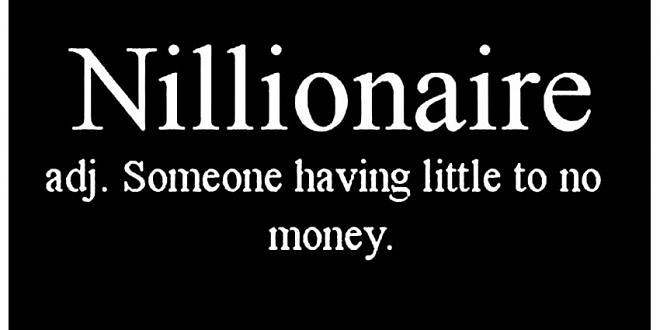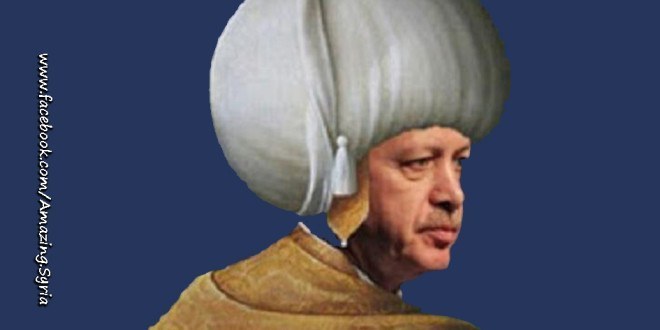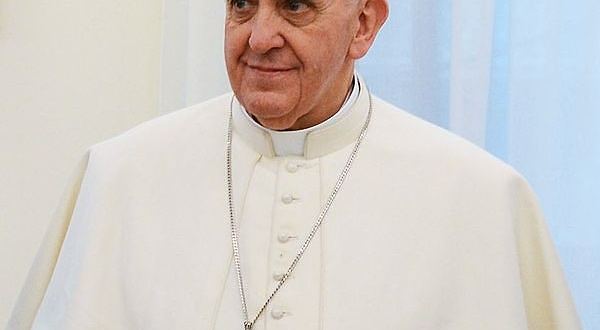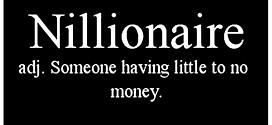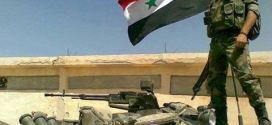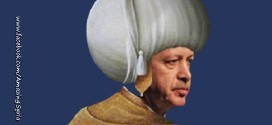Conclusion:"...The shift to negotiations with Iran, the refusal to bomb Syria … are ... indications that Washington is less inclined to launch more large-scale military intervention and more receptive to the public opinion constraints on the exercise of imperial power."
full text
Introduction
Following the Vietnam War, US imperial intervention passed through several phases: In the immediate aftermath, the US government faced a humiliating military defeat at the hands of the Vietnamese liberation forces and was under pressure from an American public sick and tired of war. Imperial military interventions, domestic espionage against opponents and usual practice of fomenting coups d’état (regime change) declined.
Slowly, under President Gerald Ford and, especially President ‘Jimmy’ Carter, an imperial revival emerged in the form of clandestine support for armed surrogates in Southern Africa – Angola, Mozambique, Guinea Bissau— and neo-liberal military dictatorships in Latin America. The first large-scale imperial intervention was launched during the second half of the Carter Presidency.
It involved massive support for the Islamist uprising against the secular government of Afghanistan and a mercenary jihadist invasion sponsored by Saudi Arabia, Pakistan and the US (1979). This was followed by direct US invasions in Grenada (1983) under President Reagan; Panama (1989) and Iraq (1991) under President Bush Sr. and Yugoslavia (1995 and 1999) under President Clinton.
In the beginning, the imperial revival involved low cost wars of brief duration with few casualties. As a result there were very few voices of dissent, far diminished from the massive anti-war, anti-imperial movements of the early 1970’s.
The restoration of direct US imperial interventions, unhindered by Congressional and popular opposition, was gradual in the period 1973-1990. It started to accelerate in the 1990’s and then really took off after September 11, 2001.
The imperial military and ideological apparatus for direct intervention was firmly in place by 2000. It led to a prolonged series of wars in multiple geographical locations, involving long-term, large-scale commitments of economic resources, and military personnel and was completely unhampered by congressional or large-scale public opposition – at least in the beginning.
The ‘objectives’ of these serial wars were defined by their principal Zionist and militarist architects as the following:
(1) destroying regimes and states (as well as their military, police and civil governing bureaucracies) which had opposed Israel’s annexation of Palestine;
(2) deposing regimes which promoted independent nationalist policies, opposing or threatening the Gulf puppet monarchist regimes and supporting anti-imperialist, secular or nationalist-Islamic movements around the world.
Blinded by their imperial hubris (or naked racism) neither the Zionists nor the civilian militarists within the US Administrations anticipated prolonged national resistance from the targeted countries, the regrouping of armed opposition and the spread of violent attacks (including terrorism) to the imperial countries.
Having utterly destroyed the Afghan and Iraqi state structures, as well as the regime in power, and having devastated the economy as well as any central military or police capacity, the imperial state was faced with endless armed civilian ethno-religious and tribal resistance (including suicide bombings), mounting US troop casualties and spiraling costs to the domestic economy without any “exit strategy”.
The imperial powers were unable to set up a stable and loyal client regime, backed by a unified state apparatus with a monopoly of force and violence, after having deliberately shredded these structures (police, bureaucracy, civil service, etc) during the invasion and early occupation.
The creation of this “political vacuum” was never a problem for the Zionists embedded in the US Administrations since their ultimate goal was to devastate Israel ’s enemies . As a result of the US invasions, the regional power of Israel was greatly enhanced without the loss of a single Israeli soldier or shekel.
The Zionists within the Bush Administration successfully blamed the ensuing problems of the occupation, especially the growing armed resistance, on their ‘militarist’ colleagues and the Pentagon ‘Brass’. ‘Mission Accomplished’, the Bush Administration Zionists left the government , moving on to lucrative careers in the private financial sector.
Under President Obama, a new ‘cast’ of embedded Zionists have emerged to target Iran and prepare the US for a new war on Israel ’s behalf. However, by the end of the first decade of the 21stcentury, when Barak Obama was elected president, the political, economic and military situation had changed. The contrast in circumstances between the earlyBush (Jr.) years and the current administration is striking.
The 20-year period (1980-2000) before the launching of the ‘serial war’ agenda was characterized by short, inexpensive, low-casualty wars in Grenada , Panama and Yugoslavia , and a proxy war in Afghanistan . Israeli invasions and attacks against Lebanon, the occupied West Bank and Syria .
One major US war of short duration and limited casualties against Iraq (the First Gulf War). The First Gulf War succeeded in weakening the government of Saddam Hussein, fragmenting the country via ‘no fly zones’, establishing a Kurdish client ‘state’ in the north while ‘policing’ was left to the remnants of the Iraqi state – all without having to occupy the country.
Meanwhile, the US economy was relatively stable and trade deficits were manageable. The real economic crisis was still to come. Military expenditures appeared under control. US public opinion, initially hostile to the First Gulf War was “pacified” by its short duration and the withdrawal of US troops.
Iraq remained under aerial surveillance with frequent US bombing and missile strikes whenever the government attempted to regain control of the north. During this period, Israel was forced to fight its own wars and maintain an expensive occupation of southern Lebanon – losing its own soldiers.
By the second decade of the 21st century everything had changed. The US was bogged down in a prolonged thirteen year war and occupation in Afghanistan with little hope for a stable client regime in Kabul. The seven-year war against Iraq (Second Gulf War) with the massive occupation, armed civilian insurgency and the resurgence of ethno-religious conflict resulted in casualties and a crippling growth in US military expenditures.
Budget and trade deficits expanded exponentially while the US share of the world market declined. China displaced the US as the principle trading partner in Latin America, Asia and Africa. A series of new ‘low intensity’ wars were launched in Somalia , Yemen and Pakistan which show no prospect of ending the drain on the military and the US Treasury.
The vast majority of the US public has experienced a decline in living standards and now believes the cost of overseas wars are a significant factor contributing to their relative impoverishment and insecurity. The multi-trillion-dollar bailout of the Wall Street banks during the economic crash of 2008-09 has eroded public support for the financial elite as well as the militarist-Zionist elite, which continue to push for more imperial wars.
The capacity of the US imperial elite to launch new wars on Israel ’s behalf has been greatly undermined since the economic crash of 2008-09. The gap between the rulers and ruled has widened. Domestic economic issues, not the threat of external terrorists, have become the central concern. The public sees the Middle East as a region of unending costly wars – with no benefit to the domestic economy.
Asia has become the center of trade, growth, investment and a major source of US jobs. While Washington continues to ignore the citizens’ views, accumulated grievances are beginning to have an impact.
A Pew Research report, released in late 2013, confirms the wide gap between elite and public opinion. The Pew Foundation is an establishment polling operation, which presents its questions in a way that avoids the larger political questions.
Nevertheless, the responses presented in the report are significant: By a vast margin (52% to 38%) the public agree that the US “should mind its own business internationally and let other countries get along the best they can on their own”.
This represents a major increase in public opposition to armed US imperialist intervention and the 52% response in 2013 contrasts sharply with 30% polled 2002.
A companion poll of elite policy advisors, members of the Council on Foreign Relations (CFR), highlights the gap between the US public and the ruling class. The elite are described by the Pew Report as having a ‘decidedly internationalist (imperialist-interventionist) outlook’.
The American public clearly distinguishes between ‘trade’ and ‘globalization’ (imperialism.): 81% of the public favor ‘trade’ as a source of job creation while 73% oppose ‘globalization’ which they see as US companies relocating jobs overseas to low wage regions.
The US public rejects imperial economic expansion and wars for the harm done to the domestic economy, middle and working class income and job security.
The members of the Council on Foreign Relations, in contrast, are overwhelmingly in favor of ‘globalization’ (and imperial interventions). While 81% of the public believe the principle goal of US foreign policy should be the protection of American jobs, only 29% of the CFR rate US jobs as a priority.
The elite is conscious of the growing gap in interests, values and priorities between the public and the imperial state; they know that endless costly wars have led to a mass rejection of new imperial wars and a growing demand for domestic job programs.
This gap between the imperial policy elite and the majority of the public is one of the leading factors now influencing US foreign policy. Together with the general discredit of the Congress (only 9% favorable), the public’s rejection of President Obama’s militarist foreign policy has seriously weakened the empire’s capacity to begin new large-scale ground wars at multiple sites.
Meanwhile, Israel ( Washington ’s foreign patron), the Gulf State clients and European and Japanese allies have been pushing the US to intervene and confront ‘their adversaries’.
To this end, Israel and the Zionist Power Configuration within the US government have been undermining peace negotiations between the US and Iran . Saudi Arabia and the other Gulf monarchies, as well as Turkey are urging the US to attack Syria . The French had successfully pushed the US into a war against the Gaddafi government in Libya and have their sights on their former colony in Syria .
The US has given only limited backing to the French military intervention in Mali and the Central African Republic .
The US public is aware that none of Washington’s ‘militarist’ patrons, clients and allies has paid such a high price in terms of blood and treasure as the US in the recent wars. The Saudi, Israeli and French “publics” have not experienced the socio-economic dislocations confronting the US public.
For these ‘allied’ regimes, the cheapest way to resolve their own regional conflicts and promote their own ambitions is to convince, coerce or pressure the US to “exercise its global leadership”.
Washington ’s imperial policymakers, by background, history, ideology and past experience, are sensitive to these appeals – especially those from the Israelis. But they also recognize the growing “intervention fatigue” among the American public, the CFR’s euphemism for rising anti-imperialist feelings among the American majority, which is saying ‘no’ to further imperial military interventions.
Faced with choice of acting as an unfettered imperial power with global interests and facing rising domestic discontent, Washington has been forced to revise its foreign policy and strategies. It is adopting a more nuanced approach, one less vulnerable to external pressures and manipulations.
Imperial Foreign Policy in a Time of Domestic Constraints and External Pressures
US empire builders, with increasingly limited military options and declining domestic support, have begun to (1) prioritize their choice of places of engagement, (2) diversify their diplomatic, political and economic instruments of coercion and (3) limit large-scale, long-term military intervention to regions where US strategic interests are involved.
Washington is not shedding its militarist polices by any means, but it is looking for ways to avoid costly long-term wars which further undermine the domestic economy and intensify domestic political opposition.
In order to decipher US imperial policy in this new context, it is useful to first (1) identify the regions of conflict, (2) estimate the significance of these countries and conflicts to the empire and, (3) analyze the particular interventions and their impact on US empire building. Our purpose is to show how the interplay between domestic and external countervailing pressures affects imperial policy.
Conflicts which Engage US Empire Builders
There are at least eleven major or minor conflicts today engaging US empire builders to a greater or lesser extent. A major premise of our approach is that US empire builders are more selective in their aggression, more conscious of the economic consequences, less reckless in their commitments and have a greater concern for domestic political impact.
Current conflicts of interest to Washington include those taking place in the Ukraine , Thailand , Honduras , China-Japan-South Korea, Iran-Gulf States/Israel, Syria , Venezuela , Palestine-Israel , Libya , Afghanistan and Egypt .
These conflicts can be classified according to whether they involve major or minor US interests and whether they involve major or minor allies or adversaries. Among the conflicts where the US has strategic interests and which involve major actors, one would have to include the territorial and maritime dispute between Japan , South Korea and China .
On the surface the dispute appears to be over economically insignificant pile of rocks claimed by the Japanese as the Senkaku Islands and by the Chinese as the Diaoyu Islands .
In essence, the conflict involves the US plan to militarily encircle China by provoking its Japanese and Korean allies to confront the Chinese over the islands. Washington ’s treaties with Japan will be used to come to the ‘aid’ of its most important ally in the region.
The US support of Japan ’s expansionist claims is part of a strategic shift in US policy from military commitments in the Middle East to military and economic pacts in Asia, which exclude and provoke China .
The Obama Regime has announced its ‘Pivot to Asia ’ in an attempt to deal with its largest economic competitor. China , the second biggest economy in the world, has displaced the US as the principle trading partner in Latin America and Asia . It is advancing rapidly as the principal investor in developing Africa ’s natural resources.
In response, the US has (1) openly backed Japan’s claims, (2) defied China’s strategic interests in the East China Sea by flying B52 bombers within China’s Air Defense Identification Zone and (3) encouraged South Korea to expand its ‘air defense’ zones to overlap with those of the Chinese. History teaches us that inflexible assertions of dominance by established imperial powers against rising dynamic economies will lead to conflicts, and even disastrous wars.
Imperial advisers believe that US naval and air superiority and Chinese dependence on foreign trade give the US a strategic advantage in any armed confrontation. Obama’s “Pivot to Asia” is clearly designed to encircle and degrade China ’s capacity to outcompete and displace the US from world markets.
Washington’s militarists, however, fail to take account of China’s strategic levers – especially the over two trillion dollars of US Treasury notes (debt) held by China, which, if dumped on the market, would lead to a major devaluation of the US currency, panic on Wall Street and a deeper economic depression.
China could respond to US military threats by (1) seizing the assets of the 500 biggest US MNCs located in the country which would crash the stock market and (2) cutting off the source for major supply chains, further disrupting the US and world economy.
Imperialist ambitions and resentment over the loss of markets, status, and supremacy is pushing Washington to raise the stakes and confront China .
Opposing the militarists, Washington ’s economic realists believe the USis too exposed and too dependent on credit, overseas earnings and financial revenues to engage in new military interventions in Asia, especially after the disastrous consequences of wars in the Middle East .
Current US policy reflects an ongoing struggle between the militarist imperialists and the defenders of imperial economic interests. For the market-oriented policy advisers, it makes no sense to confront China , when mutual gains from rising trade and economic inter-dependence have proven far superior to any marginal territorial gains offshore.
These conflicting outlooks find expression in the alternating bellicose and conciliatory rhetoric of Vice President Biden during his December visit to Japan , China and South Korea .
The second area involving major actors and interests is the Persian Gulf, especially Israel – Iran – Saudi Arabia and the US . Having gone through costly and disastrous wars in Iraq and Afghanistan and fully aware that US intelligence agencies have found no evidence of an Iran nuclear weapons program, the Obama Administration is eager to reach an agreement with Iran.
Nevertheless, US strategists are pursuing an agreement that would: (1) weaken Iran ’s defense capability, (2) undermine Iranian support for popular revolts among Shiite populations living in the Gulf Monarchies, (3) isolate President Bashar Assad in Syria and (4) facilitate a long-term US presence in Afghanistan by destroying Al Qaeda operations throughout the region.
In addition a US – Iran agreement would lift the harsh economic sanctions and (1) allow US oil companies to exploit Iran’s richest oil fields, (2) lower the cost of energy and (3) reduce US trade deficits.
A major stumbling block to any US-Iran agreement is from the well-entrenched Zionist strategists and advisers among policy-makers, especially in the Executive Branch, including such Department heads and Secretaries as Treasury Undersecretary (for ‘Terrorism’) David Cohen, Treasury Secretary Jack Lew, US Trade Representative Michael Froman, ‘Special Adviser for the Persian Gulf’ Dennis Ross among others. (Whose interests are represented by those guys?)
An even greater obstacle to the agreement comes from the Zionist-controlled US Congress, which acts more on behalf of Israel ’s regional ambitions than for US interests.
Israel ’s megalomaniacal rulers seek military, political and economic supremacy throughout the Middle East (from Sinai to the Gulf) and have so far successfully used the US military to destroy and weaken its adversaries at no cost to Israeli soldiers or economy.
Israel has taken a direct hand in setting the terms, which the US will demand from Iran . According to the Financial Times (12/8/13, p. 4), “A team of senior Israeli officials led by Yossi Cohen, national security adviser, is due to visit Washington … to begin detailed discussions with the Obama Administration to use its influence in shaping the negotiating agenda.”
Secretary of State John Kerry has already caved in to Israeli pressure stating, “We will be stepping up on enforcement (of existing sanctions) through the Treasury Department,” (FT 12/18/13, p. 4).
Israel and its top Zionist agent within the Obama Administration, Dennis Ross, are pushing for a joint Israeli-US “working group” to discuss tightening sanctions on Iran and punishing any government or business which tries to do business with Iran during the “interim agreement”, a position pursued by David Cohen and Treasury Secretary Jack Lew (FT 12/ 13/13).
Israel is behind the US demand that Iran convert its Arak Facilities from a heavy water into a light-water reactor and reduce its centrifuges by 95% from 19,000 to 1,000.
In other words, Israel dictates terms to the US negotiators that will effectively sabotage any possible agreement and put the US on a course toward another war for Israel .
Surprisingly, Israel ’s hardliners and its agents within the US Administration have an important and unlikely ally – Iran ’s Foreign Minister Mohammed Javid Zarif, the chief negotiator in Geneva , who has downplayed Iran ’s military capabilities and exaggerated US military capabilities and seems quite willing to dismantle Iran ’s peaceful nuclear program.
In justifying his far-reaching concessions and meager returns, Foreign Minister Zarif publicly declared that ‘the US could destroy the country’s ( Iran ’s) defense system with one bomb!” (FT, 12/10/13, p. 2) Zarif, in effect, is preparing to sell out Iran ’s nuclear industry, in advance, without any objective consideration of Iran ’s military power or recognition of US strategic weaknesses.
Saudi Arabia’s rulers influence US policy through their contracts with the military – industrial complex – amounting to over $20 billion dollar arms purchase in 2013.
In addition, the Saudi Monarch has allowed the construction of US military bases on its territory and maintains close ties with Wall Street investment houses. Saudi opposition to any US – Iran rapprochement arises from Riyadh ’s fear of Iranian influence over its oppressed Shia minority and Tehran ’s critique of the absolutist monarchy.
The positive gains, in terms of US strategic military and economic interests from an agreement with the liberal Iranian regime, are offset by the negative pressures from Saudi and Israeli-Zionists interests. As a result, Washington ’s policy oscillates between peaceful, diplomatic overtures to Iran and bellicose threats to appease Israel and Saudi Arabia .
Washington is desperate to avoid being dragged into another “war for Israel ”, in order to secure its hegemony in the Persian Gulf region and avoid a major domestic political and economic crisis.
The Obama Administration has yet to exhibit the high degree of statesmanship necessary to restrain and neutralize the deeply embedded Zionist Power Configuration, within its ranks and in the Congress, which places Israeli interests over those of the US .
Regional Conflicts: Minor Interests and Major Actors
The Ukraine – European Union (EU) – Russian conflict involves minor US economic interests but potentially major military interests. The US supports the EU’s policy of incorporating the Ukraine into its economic and trade system. The EU will be the major beneficiary in the plunder of Ukraine ’s economy, penetrating its market and reaping mega financial returns.
The US is content to watch the EU play the major role in stoking Ukrainian civil unrest. If and when Ukraine joins the EU, it will become another client regime subject to the dictates of the bankers and bureaucrats in Brussels , just like Spain , Greece , Portugal and Italy ). The US is mainly interested in bringing the Ukraine into NATO as part of its policy of surrounding Russia .
Syria, like Libya , Mali , Central African Republic and Egypt , are of secondary interest for the US . Washington has let the European Union, especially France, England and their allies, lead and direct military operations directly and through proxies.
The Obama Administration already faced intense “intervention fatigue” – widespread popular opposition to war – when it joined the EU in bombing Tripoli to rubble, but it refused to commit ground forces and left Libya a broken country without a viable economy, stable society or functioning state!
So much for ‘humanitarian intervention’! Intervention in Syria has faced even greater domestic opposition from Congress and the US public – except for the Israeli and Saudi lobbies.
Obama was clearly not willing to act as ‘Al Qaeda’s Air Force’ by bombing Damascus and facilitating a jihadist takeover. It chose diplomatic solution and accepted the Russian proposal to dismantle Syria ’s chemical weapons. It appears to support a Geneva-based negotiated solution. Another war, this time with Syria , would inflame US domestic discontent and further erode the economy, with no positive gain for US imperialism.
In fact, US military victory over Damascus would expand the territory of operation for Al Qaeda in Iraq and the Levant . It was US public opinion that overcame the massive pro-Israel media barrage and pressure from the 52 Presidents of the Major American Jewish Organizations that had been actively pushing the Obama Administration into a ‘Syrian Quagmire’!
French President Francoise Hollande is the new face of imperial militarism and interventionism in Africa with its massive bombing in Libya and invasion and occupation in Mali and the Central African Republic . The US is content to play a ‘supporting role’ to France . It has no strategic involvement in Africa apart from its proxy wars in Somalia .
With public opinion strongly against any more major direct military intervention Washington has turned to military proxies for conflicts in ‘strategic’ and marginal countries and regions. Even where significant imperial interests may be involved, Washington increasingly relies on local elites to act on its behalf in conflicts in countries as diverse as Yemen , Thailand , Honduras , Venezuela , Pakistan , Afghanistan and Egypt .
Sending drones and dispatching teams of Special Forces in clandestine operations have been the US Administration’s intervention of choice in Yemen , Somalia and Pakistan . In Afghanistan, Special Forces combine with the US military, NATO troops and local client military proxies, as well as drones.
In Honduras, the US-backed military coup, which unleashed death squads with the killing of over 200 dissident activists in a two year period was followed by a fraudulent election which reclaimed ‘power’ for a US client regime.
In Venezuela , the US continues to finance opposition parties who support violent street mobs, the sabotage of public services like electricity, while relying on local business elites to hoard basic goods and inflate prices. So far, these efforts to undermine the Venezuelan government have failed.
Conclusion
US Empire builders have relied on a wider variety of interventions than their predecessor under President George W. Bush. They are much less prone to launch large-scale ground operations and more likely to turn to local client elites. They have shown a far greater sense of priorities in selecting targets for direct intervention.
Washington relies more on its imperial European allies, especially the French, to take the lead in Africa, without relinquishing its key interest in maintaining Egypt tightly under US-Israeli control. There is a shift in priority toward the Far East, especially the countries bordering China , like Japan and South Korea , as part of the long-term US strategy to encircle and limit China ’s economic expansion.
The US ‘Pivot to Asia ’, under the Obama Administration, is characterized by alternating economic negotiations with growing military encirclement.
Controlling the Persian Gulf and undermining Iran continues to be a high priority for US Empire builders, but the costly and disastrous invasion and occupation of Iraq under George W. Bush and its adverse domestic fallout, has led Washington to rely less on military confrontation with Tehran and more on economic sanctions, military encirclement and now diplomatic negotiations to secure collaboration from the new Rouhani regime.
The principle strategic weakness in US empire building policy lies in the absence of domestic support. There is a growing demand for better paying jobs to reverse the decline of US living standards and greater protection for social services and livelihoods.
The second strategic weakness is found in the incapacity of the US to create a viable economic “co-prosperity sphere”, which would win allies in Asia and Latin America .
The so-called “Pivot to Asia” is overly and overtly reliant on military(mostly naval) power, which functions in times of ‘territorial conflicts’ with China, but does not create stable, structural links with local productive elites – who rely on China for trade.
In the end the most serious obstacle to effectively adapting US foreign policy to the current realities is the influential Israel-linked-Zionist Power Configuration embedded in the Congress, the Administration and the mass media. Zionists are deeply committed to pushing the US into more wars for Israel .(??? whose interests are served, whom do these people represent? It is after all the big ones who set the tone and not the tiny countries)
Nevertheless the shift to negotiations with Iran, the refusal to bomb Syria and the reluctance to get involved in the Ukraine are all indications that Washington is less inclined to launch more large-scale military intervention and more receptive to the public opinion constraints on the exercise of imperial power.
marks and remarks by blogger
By
Prof. James Petras, Global Research
Post Categories: Canada
James Petras | Sunday, December 22, 2013, 12:30 Beijing



